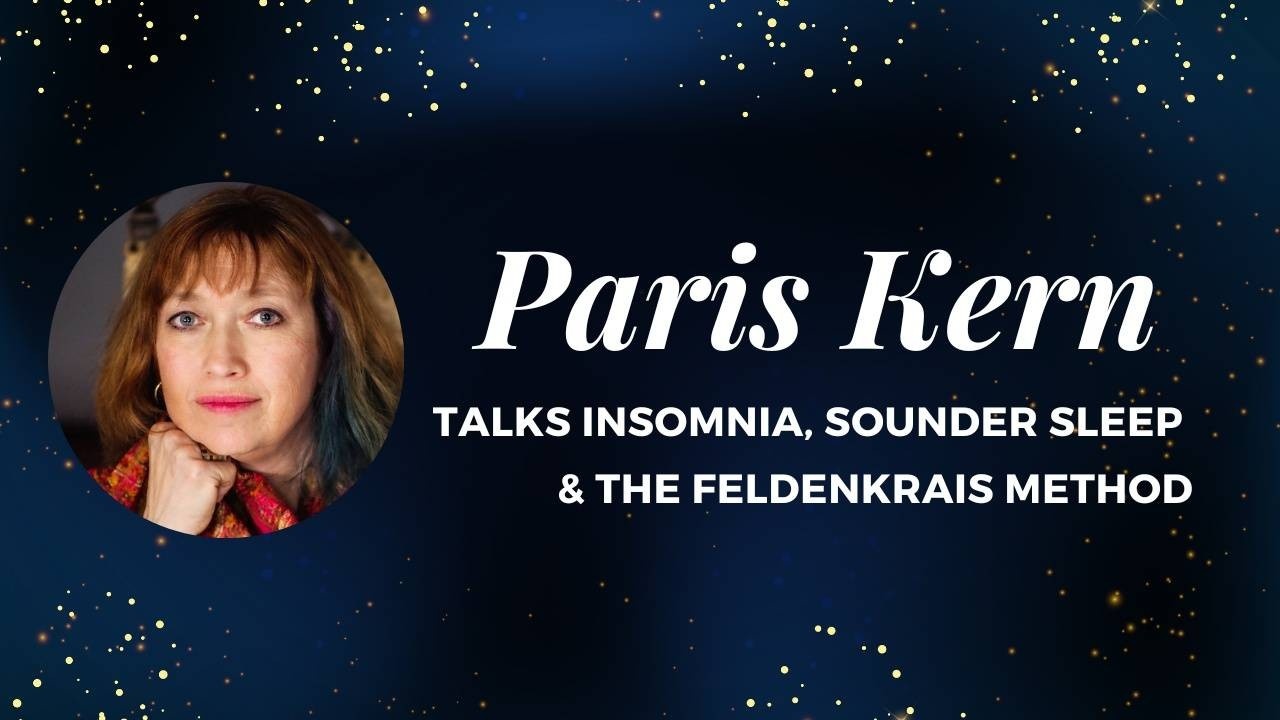An Interview with Feldenkrais Trainer Paris Kern

Ira Feinstein: What brought you to the Feldenkrais Method®?
Paris Kern: I'm a singer and a guitar player, and in the late 80s, I was canceling concerts because I was in so much pain. I went down all the typical allopathic channels looking for a solution. After a while, I saw an osteopath, who was the first person who actually listened to what I was telling him about myself. He said, "Why don't you go to this massage therapist? She's really good." I went to the massage therapist. I would feel good for a few days and then return to square one. After a while, she said, "This person is doing a Feldenkrais® workshop. I think you'd probably like it." So, I went.
Ira: What was that first workshop like for you?
Paris: Finding the Feldenkrais Method was coming home for me. I was raised by a father who was a psychiatrist and an environmentalist mother, both of whom thought in systems. My father was instrumental in creating the concept of the Family System Theory along with Virginia Satir in the '60s. My mother was an environmentalist, railing about people throwing cigarette ashes out of their car windows in the '50s. So, when the Feldenkrais teacher said, "With the Feldenkrais Method, we don't think about the "mind" as disconnected from the "body." There is no separation. There's just the person." I thought, "Finally! Somebody is thinking in terms of a system."
Ira: You found that it helped with your chronic pain. Did you find other areas of your life improved?
Paris: I improved. Yes, the pain lessened, but what happened over time was that I stopped compartmentalizing myself when interacting with people. That was probably the most profound change.
Ira: After your Feldenkrais Training, you also became a Sounder Sleep® teacher? Could you tell me about Sounder Sleep?
Paris: Michael Krugman was a Feldenkrais Practitioner with insomnia. He found that he would fall asleep whenever he did Feldenkrais lesson involving fine motor movements of the hands and wrists. One night when sleep eluded him, he did a few of the movements and fell asleep. When he woke up again, he did more of the movements and fell asleep again. That was the birth of the Sounder Sleep System. I was part of the first cohort in the United States to study with him because I was a light sleeper and would wake up easily.
Ira: How did your understanding of sleep change because of that training?
Paris: I learned that we have everything we need for better sleep right at our fingertips by doing "Hypnogenic movements." "Hypno," meaning sleep, "genic," meaning generating. When using these movements, we engender a sleep state. Most of that has to happen during the day because it's what we do during the day with ourselves that will create the situation where our nervous system can do the shutdown process to fall asleep. We cannot make ourselves fall asleep. We must get out of the way and let the nervous system do the work. That's what the Sounder Sleep system does. The Sounder Sleep System, in Michael’s words, “Simply bring yourself to the beach [ calm state] and let the waves of sleep come to you.”
Ira: Could you tell me about your upcoming online series, A Good Night's Sleep?
Paris: I will be teaching a Feldenkrais lesson followed by a Sounder Sleep system technique. The Feldenkrais aspect of this series will be lessons that will make it more possible for people to do the finer movement techniques for the Sounder Sleep System.
When you get these techniques, you have to practice them, so they become almost Pavlovian in the response you get. They come in handy in many ways. I've had students who have used them before going into an MRI machine, the dentist, or before any situation where they know they're going to get stressed out and anxious. The Sounder Sleep movements will apply to anything that stresses out a person. Stressing out is the thing that makes the sleep bad.
I think everybody understands that poor sleep and insufficient sleep has become an epidemic worldwide. We have all sorts of anxiety: environmental disasters, war, poverty, or just not knowing if your husband will be able to make it around that bend in the highway again while coming home from work. I will be teaching techniques that you can use to help your system balance back from that. I can't change what's happening in the world, but I can help people find a way to change how they react to what happens in the world.
This program is now available on-demand! Try the first class for free: www.feldenkraisaccess.com/good-sleep


